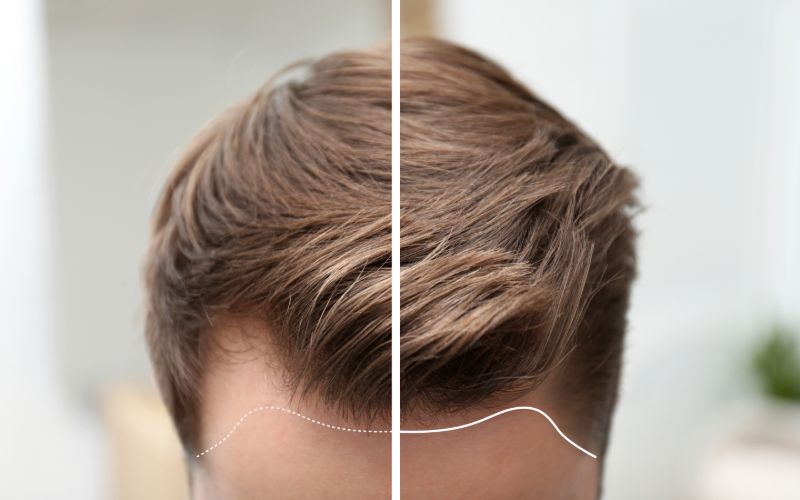Hair transplants have become a popular solution for those experiencing hair loss, offering a chance to restore a natural-looking hairline and improve self-esteem. However, the success of a hair transplant depends on various factors that need careful consideration. From the surgeon’s expertise to post-operative care, each element plays a critical role in the overall outcome. Understanding these factors can help individuals make informed decisions and increase the likelihood of a successful transplant. This article explores six key factors that affect hair transplant success to provide a comprehensive guide for prospective patients.
Surgeon’s Expertise and Experience
The surgeon’s expertise and experience are paramount in determining the success of a hair transplant. A skilled surgeon with extensive experience in hair restoration techniques can ensure precise graft placement, natural hairline design, and minimal scarring. Their proficiency also helps in handling complex cases and avoiding common pitfalls that can compromise results. Checking the surgeon’s credentials, including their certifications, training, and patient reviews, can provide insights into their competence. Choosing a well-qualified and experienced surgeon is crucial for achieving optimal results and reducing the risk of complications.
Quality of Donor Hair
The quality of donor hair significantly impacts the success of a hair transplant. Donor hair, typically taken from the back or sides of the scalp, needs to be healthy, dense, and similar in texture to the recipient area for a natural look. Poor-quality donor hair can lead to unsatisfactory results, including thin or uneven coverage. Additionally, the availability of sufficient donor hair is essential for achieving the desired density and coverage, especially in extensive hair loss cases. Evaluating the donor area’s condition is a vital step before proceeding with the transplant to ensure a successful outcome.
Patient’s Health and Medical History
A patient’s overall health and medical history play a critical role in the success of a hair transplant. Conditions such as diabetes, hypertension, and autoimmune diseases can affect healing and hair growth post-transplant. Additionally, certain medications and smoking can impede the recovery process and the survival rate of transplanted hair follicles. A thorough medical evaluation by the surgeon can help identify any potential risks and create a tailored plan to address them. Ensuring optimal health before undergoing the procedure can enhance the success rate and longevity of the results.
Surgical Technique
The choice of surgical technique is a critical factor that affects the success of a hair transplant procedure. FUE, or Follicular Unit Extraction, is a minimally invasive technique that involves individually harvesting hair follicles from a donor area and transplanting them into the recipient site. This precise method minimizes scarring and downtime while maximizing the natural-looking results. Surgeons who specialize in FUE hair transplants utilize advanced technology and meticulous techniques to ensure optimal outcomes for their patients. By selecting a qualified and experienced surgeon who is proficient in the chosen surgical technique, individuals can enhance the likelihood of achieving satisfactory and long-lasting results from their hair transplant procedure.
Post-Operative Care
Proper post-operative care is essential for the success of a hair transplant. Following the surgeon’s instructions regarding scalp care, medication, and activity restrictions can significantly influence healing and graft survival. Patients should avoid strenuous activities, direct sun exposure, and smoking during the recovery period to prevent complications. Additionally, adhering to a prescribed hair care regimen helps maintain the health of both transplanted and existing hair. Consistent and diligent post-operative care ensures optimal conditions for hair growth and long-term success.
Realistic Expectations
Realistic expectations are crucial for patient satisfaction and the perceived success of a hair transplant. It is important to understand that hair restoration is a gradual process and that final results can take up to a year to fully manifest. Patients should also recognize that a hair transplant can not restore the hair density of their youth but can significantly improve their appearance and confidence. Clear communication with the surgeon about expected outcomes and potential limitations can help align expectations with achievable results. Realistic expectations contribute to overall satisfaction and a positive experience with the procedure.
Conclusion
The success of a FUE hair transplant in Los Angeles is influenced by several key factors, including the surgeon’s expertise, the quality of the donor’s hair, the patient’s health, surgical technique, post-operative care, and realistic expectations. Each of these elements plays a vital role in achieving natural-looking and long-lasting results. By understanding and addressing these factors, patients can enhance their chances of a successful hair transplant and a satisfying outcome. Careful consideration and preparation before the procedure, along with diligent post-operative care, are essential for optimizing the results and ensuring a positive transformation.
